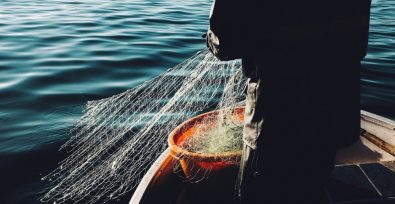A harrowing BBC investigation has unveiled that dozens of workers from the Philippines, Ghana, India, and Sri Lanka may have been trafficked into the U.K. to work for a small Scottish fishing firm. The workers, employed by TN Trawlers and its sister companies—owned by the Nicholson family—were subjected to what they describe as exploitative and dangerous conditions. Between 2012 and 2020, the Home Office recognized 35 of these men as victims of modern slavery. Despite two long-running criminal investigations, no cases of human trafficking or slavery have been brought to trial.
TN Trawlers continued to recruit workers from around the globe even while under investigation. Workers described grueling hours, inadequate food and water, and a complete lack of concern for their well-being. TN Trawlers has denied any wrongdoing, claiming that their employees were well treated and fairly compensated.
“Treated like slaves”
The BBC reports,
Joel had a young family back home in the Philippines, thousands of miles away. He had been expecting to earn a good income working in the UK. He was to be paid $1,012 (£660) a month for a 48-hour week.
He caught a bus from London to Carlisle, where, he says, he was picked up by the owner’s son, Tom Nicholson Jr.
“On our way to go to the boat he told us: ‘You have to give me your documents’ – so without hesitation I gave all my documents to them,” he said.
Joel says he was then taken straight to the fishing ground to start working.
But he was surprised to find that his boat was the Philomena rather than the Mattanja, which was the only vessel he was authorised to work on under the terms of his visa. “This was already something fishy for me,” he said
He claims that instead of the 48-hour week he had been told about, he was working 18 hours a day, seven days a week while the Philomena was out fishing.
Jaype Rubi, a worker from the Philippines, described how the boat’s skipper monitored them via CCTV, reprimanding them for even brief moments of rest. “It was super cold, and there was not enough food,” Jaype recounted. The lack of basic necessities like warm clothing, food, and water added to the already unbearable working conditions. Jaype’s experience, like that of many others, left him feeling dehumanized and desperate to return home.
In addition to the physical hardships, workers were often coerced into performing tasks outside their job descriptions. One man, Jovito Abiero, revealed that he was sometimes sent to the home of the company’s owner to do gardening—an assignment far removed from his role as a fisherman. Others reported similar experiences, with some even forced to work onshore at the TN yard in Annan, despite holding transit visas that did not permit such work.
A call for justice and reform
The workers’ ordeal extends beyond exploitation to a failing justice system. After years of waiting to testify, many saw their cases dismissed due to lack of evidence. When the case finally reached court in 2022, charges were reduced. Thomas Nicholson Sr., TN Trawlers’ director, received a £13,500 fine and was ordered to pay £3,000 to Joel – a paltry sum given the scale of abuse.
Worse yet, Scottish government documents reveal that TN Trawlers and its associated firms received significant funding despite ongoing investigations into human trafficking. In 2010, TN Trawlers was awarded grants of £95,142 and £26,921 through the European Fisheries Fund, followed by a £78,000 grant in 2013 while under active investigation. In 2021, during the Covid pandemic, TN Enterprises received £22,800 from the Scottish government’s Seafood Producers Resilience Fund, while sister company Philomena Trawlers Ltd was granted £28,800. These awards occurred even after 18 crew members were recognized as trafficking victims by the U.K. Home Office.
This case exposes glaring gaps in U.K. protections for migrant workers and accountability for traffickers.
While some survivors have been granted leave to remain, others face uncertainty as their permissions expire. The experience has left workers bitter, feeling betrayed by both their employer and the justice system. One survivor’s words resonate: “This is how your U.K. law works… You favor the wealthy and ignore the poor.” This sentiment echoes across many modern slavery cases, where vulnerable individuals suffer while powerful figures face minimal consequences.
Migrants in search of a better future are being trafficked, exploited, abused and even murdered aboard fishing vessels. The isolated nature working at sea or on other water bodies often deprives fisherfolk (including children) of access to the protections available in landside workplaces. They are forced to work, unable to escape and under threat and abuse. Learn more about slavery at sea and how you can take action.





Freedom United is interested in hearing from our community and welcomes relevant, informed comments, advice, and insights that advance the conversation around our campaigns and advocacy. We value inclusivity and respect within our community. To be approved, your comments should be civil.
I am so frequently disgusted by our governments’: U.K. & Scottish due to the lack of criminal justice afforded these exploited individuals.
I don’t agree with fishing as I am a vegan & whilst humans continue to eat animals, compassion will never be present… However this case demonstrates another case of exploitation to fund profit for companies.
The Nicholson family & law makers should hold their heads in shame